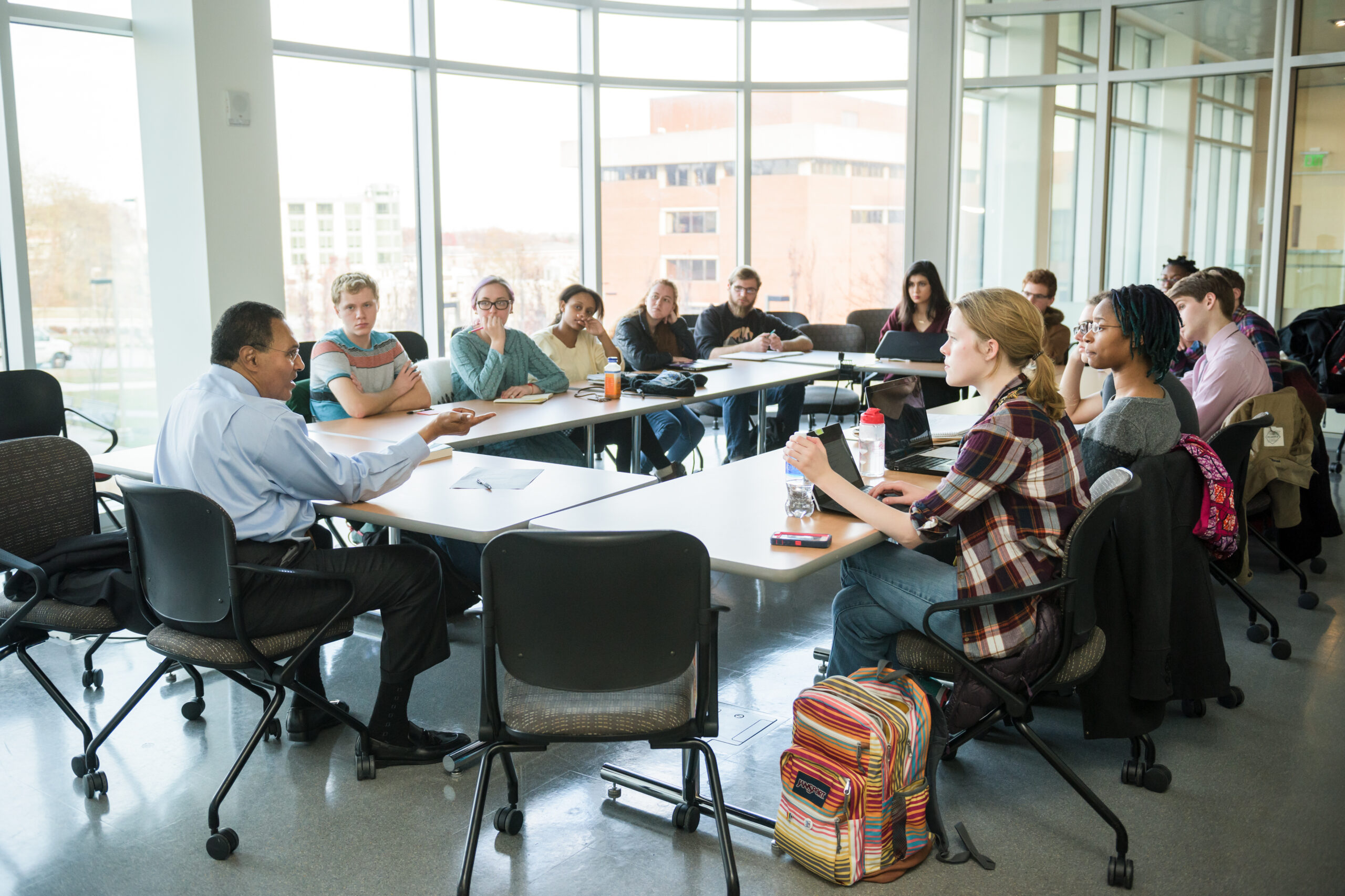In a recent interview at the Bipartisan Policy Center’s Bob and Elizabeth Dole Series on Leadership, UMBC President Freeman Hrabowski shared his perspective on leading diverse and inclusive communities in today’s political environment.
Hrabowski grounded his talk in his own experience with the civil rights movement. He also drew listeners back to the founding of UMBC, noting, “It’s only been since the 1960s that we have said in the most clear manner that we need to bring more people into the mainstream.” He pointed out, “When the university was founded in the 1960s, we really were the only university in the state where kids of all races could come.”
More than 50 years later, UMBC still takes pride in its diverse community, which Hrabowski noted includes new immigrants and first-generation Americans with families from more than 100 countries, and first-generation college students, as well as students from military and intelligence families in the Washington, D.C. region. Hrabowski also pointed to UMBC’s socioeconomic diversity and the brain power of public research universities, saying, “You don’t have to be wealthy to succeed intellectually.”
How does this diverse group feel about the current heated political rhetoric? “People are angry, as you might imagine…people [at UMBC] believe in our country and they know we can be better than this,” said Hrabowski.
Reflecting on his conversations with students, Hrabowski told the audience, “young people will ask those of us of other generations ‘why haven’t you made it better than this?’…this is where the role of a teacher or mentor becomes most important.” He wants students to understand that “democracy is messy,” but change is possible, and we are empowered to make our communities and our country what we want them to become.
Hrabowski said he is “very proud” of how the UMBC community handles difficult conversations about policy and political issues, working across differences in perspective and opinion. He noted that “sometimes students need a chance to be upset with each other and have those conversations to find common ground.”
The key, Hrabowski suggested, is finding constructive ways to “help people not to give in to the anger of the moment.” He explained that educators have an important role in helping students learn how to effectively analyze complex issues, including ideas they disagree with, and to “understand the need to agree to disagree agreeably, with some civility.” By doing these things, Hrabowski said, students learn how to engage in respectful, productive public discourse.
Just as he views UMBC as a model for inclusive excellence in public higher education, Hrabowski sees Maryland as a model for bipartisanship and civility in state government. “[O]ur state is one of the few I see where you have more bipartisan agreement. We have a Republican governor who is supporting education, and a Democratic legislature, and they are working to make things happen… They are working together in a way that America needs to look at.”
The full interview is available through the Bipartisan Policy Center on SoundCloud.
This story was written by Mary Ann Richmond ’93, history. Featured image: President Hrabowski and UMBC students in a group discussion in the Dresher Center for the Humanities.
Tags: Hrabowski

